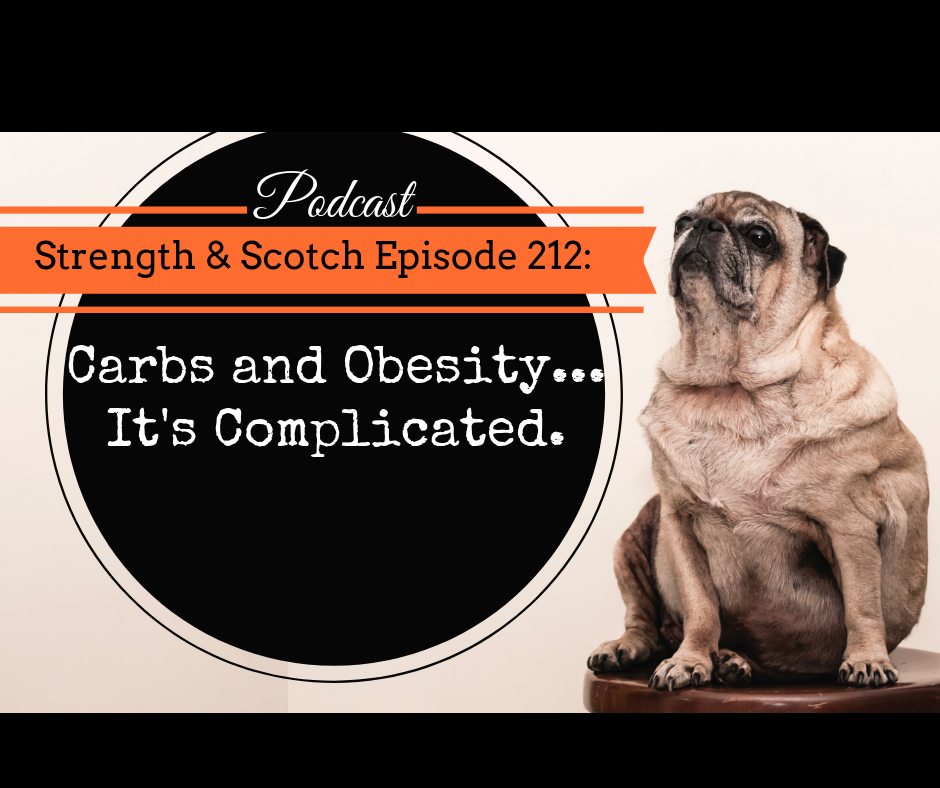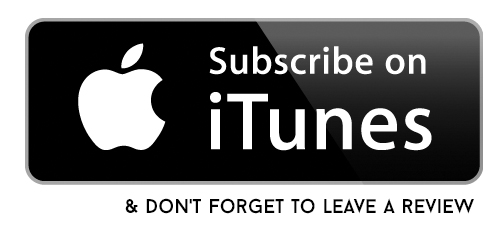SS 212 – Carbs and Obesity- It’s complicated
Episode 212 Show Notes
Grant and Heavey talk about carb intake once again and its relation to obesity. There are so many factors that go into this- so read on to find out. Plus, they discuss an article about some fingers-sniffing-ball-scratching stuff that you might be guilty of!
[03:30] Do You Sniff Your Fingers After Scratching Your Balls?
Grant has an interesting article for today about men sniffing their fingers after scratching their balls because it makes them feel alive. Men don’t do it for any apparent reason actually. They don’t know why. We don’t know why. The author of the article wanted to dig deeper into this. He found a biopsychologist that specializes in sexual and reproductive behavior, using an evolutionary approach to analyzing data. He actually doubts that this could be related to hygiene, but rather, an example of self-referential behavior similar to looking at yourself in the mirror.
Either way, self-perception can help enhance one’s mood and self-esteem. Moreover, the “instinctive attraction to our own scent” could be sort of an egoistic behavior, which is a philosophical theory characterized by self-recognition.
[08:12] Carbs, Carbs, Carbs… One More Time!
A lot of people accept the notion that carbs make us fat like there’s this carb-insulin chain that leads to fat storage and resistance to the liberation of stored fatty acids. Heavey clarifies that this is not an accepted scientific fact, but only a hypothesis for obesity. In fact, there’s a lot of evidence to the contrary.
We tend to associate certain hormones with specific functions in the body, but they tend to do more than that. For instance, we know melatonin is a sleep hormone but the role it plays in the body is much larger than one single function just like insulin.
We try to simplify these things that there’s this partisanship developed around nutrition and diet strategies, which can do more damage to people’s health than most other things. People believe in low carb and low-fat diets like it’s their political association. They seek out other people that are of the same mind and use what they’re saying to support their opinion.
[11:11] High Carbs = Obesity
There could be some connections drawn from some of the underpinning ideas behind the mechanisms of action of insulin in the body. However, Heavey thinks there are some distortions as well.
For example, it’s been said that carb intake has increased in the United States coincidentally with the obesity epidemic so carbs must be the major contributor to obesity in the U.S. Grant argues that correlation is not causation. Not to mention whether this data is even right. Heavey adds that a lot of nutritional research is actually just correlation, not causation which is what gets us into trouble. A lot of observations are inconsistent with this idea that carbs are making us fat.
[13:15] A Study on the Catawba Tribe
Insulin is released from the body when we have carbs or sugars. When insulin is around, the body takes all of its calories and tries to save them. If we reduced our body’s insulin levels by restricting our carb intake, then the food we take doesn’t get quickly or immediately converted into fat.
However, the body is dramatically more complex than these little, isolated experiments that we do. For instance, a study in the 90’s on the Catawba showed that they ate nearly 70% of their calories from carbohydrates, most of them from starchy foods. They have an abundance of food available and they’re very lean people. Diabetes is not an issue for them. Interestingly, some of their tribe have matriculated into Western culture and they’ve experienced some type of weight gain. So it’s been suggested that they’re not just a genetically gifted population that can tolerate high levels of carbohydrate.
Again, this is just an observation. Still, it doesn’t prove that carbs can make you fat or cause diabetes. It’s just like the mechanism that when you consume carbs, it releases insulin and insulin leads to some fat storage, this doesn’t prove that carbohydrate consumption leads to obesity.
[16:00] Let’s Dig Into More Studies
There’s a bunch of studies that obesity can be brought on by the overconsumption of dietary fat. We have data from unrestricted feeding that shows a diet higher in fat led to dramatically more weight gain than that in lower fat conditions (and in a higher carb condition). Rodents were fed the same with unrestricted amounts and they got fatter when they had a higher fat diet available to them.
There’s also human overfeeding trials where they do high carb vs high fat. And in those trials, they’ve seen similar weight gain across the groups.
Moreover, if it’s this insulin response, it doesn’t make sense that when we test these low glycemic load diets, that they aren’t any more beneficial for fat loss in humans, which is showing up in the research time and time again.
[17:22] Low Carb Diet Works!
It doesn’t mean it’s not a fine diet for losing weight. Heavey has worked with a lot of people on their nutrition and has put a lot of them on a low carb diet because it makes sense to that particular individual. It can do incredible things for people eating a lot of high carb + high-fat foods. And because they’re going low carb, certain nutrients are depleted and it can cause a dramatic change in their weight. So a low carb diet can be extremely beneficial. But it’s far from proven that a high carb diet is what has led to an obesity epidemic in the world. When we do research on low carb and low-fat diet, the endpoint of the research is body composition and they are equally effective.
[19:22] Carbohydrate Intake Trends in the U.S.
The normal plot you see in the U.S. with regard to carb intake increasing, this basically started in the mid-70s and early 80s when the low-fat craze kicked in. They show the carbs increasing as everybody is scared of fat. Looking at data in the early 1900s, it was higher then and carb consumption was declining until the peak where it jumped right back up in the 70s and 80s and then continued to decline. In the 2000s, the low carb craze caught on and it’s been declining since then. Today, we’re at one of the lowest levels in the United States as a population for carbohydrate consumption and obesity is at its worst.
[21:43] What Causes Obesity? Make America Think Again!
Heavey points out that people tend to pin obesity down to one thing because it’s easier to understand but the reality of it is it’s multifactorial. There are so many things in our society that have led to this and it’s not going to be defined by a single tier. It’s not just about removing sugar from the diet and making America thin again. That’s not how it works!
There’s a trend that a full 34% of calories in the United States are consumed away from home today. This is dramatically larger than it was in the 50s. People are not getting enough sleep and they’re super stressed. There are all these pieces today that probably all contribute to it together.
[23:05] What Carbs to Avoid
If there’s one carb you want to avoid though, it’s white rice. In 1975, the Japanese population consumed 62% of their calories from carbohydrates, mostly from white rice. At that time, obesity was rare. But if it’s just insulin in carbs then it shouldn’t matter. But if it’s overconsumption of foods, that’s another story. Now, it could be a combination of both. But then again, it’s got to be something other than overeating, Grant suspects. Because you look at a lot of these cultures that still don’t eat a lot but they’re starting to see an increase in diabetes. Again, a lot of factors to consider — physical activity, sleep, stress — a combination of all those things is a major contributor to diabetes.
Certain forms of carbohydrates most likely contribute to obesity in human, along with many other factors. It’s possible to find some studies that support components of the carbohydrate-insulin model of obesity. But the totality of the evidence, when we look at endpoints of body composition, doesn’t support that. It seems like many people are just interested in matching their evidence to their theories as opposed to the other way around.
[26:15] Major Takeaway
Heavey suggests that instead of focusing on carbs, focus on the other things discussed on the show and not demonize any specific foods. Focus on the basics — the four pillars (five) and actually see some very real results!
Especially when it comes to health, people have this dichotomous approach. But there’s a lot more to it than anyone expects. So this goes for the carb argument too.
Ultimately, a low carb diet can work but if you have real trouble adhering to it, then it’s not the only answer for you. Don’t give up. Try something else. At the end of the day, it’s going to be that energy balance that’s going to dictate your ability to lose weight.
Links:
Men Sniff Their Fingers After Scratching Their Balls Because It MakesThem Feel Alive

Check out the gear page for everything Strength & Scotch! You’ll find a listing of all the supplements and other programs we’ve discussed on the show as well as our killer t-shirts!

